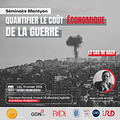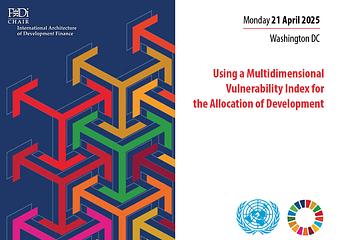










Since its creation, FERDI has worked extensively on country vulnerability—its different forms, how it is measured, and how it is or could be taken into account in international development financing. FERDI is recognised for its expertise on vulnerability-related issues and their implications for development.
↪ To enhance research on Least Developed Countries (LDCs), particularly by improving their identification and the effectiveness of the measures taken to support them.
↪ To advocate for the consideration of the structural handicaps of LDCs in the design of public development policies.
↪ To develop and expand research on vulnerability indicators.
↪ To support the integration of vulnerability considerations into international development financing
↪ To advocate for the joint consideration of security and economic development challenges.
↪ Adoption by the United Nations of the Multidimensional Vulnerability Index (MVI), largely inspired by FERDI’s work.
↪ Development by FERDI of a complementary multidimensional vulnerability indicator, based on the same principles as the MVI but with a simplified structure and fewer components.
↪ Establishment of a Vulnerability and Resilience Observatory, with a dedicated website to be launched.
↪ Ongoing monitoring of vulnerability levels in WAEMU countries.
↪ FERDI’s active partnership in the 2nd United Nations Forum on the Future of LDCs.
↪ Following the Interministerial Committee for International Cooperation and Development (CICID) meeting in July 2023, FERDI supported the French government in developing a method to identify particularly vulnerable priority countries, in addition to the 45 LDCs initially selected. The method proposed by FERDI enables the government to transparently align its political decisions with evidence-based criteria.
↪ A new edition of the the book "Out of the Trap: Supporting the Least Developed Countries" is in preparation, featuring an afterword that examines the impact of recent global crises on LDCs.






